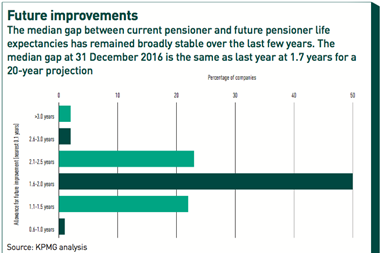The UK Financial Reporting Council (FRC) has announced that it will not update the country’s generally accepted accounting principles (GAAP) to take account of recent changes to international standards.
The changes relate to the International Financial Reporting Standards (IFRS) affecting financial instruments, revenue, and lease accounting.
In a feedback statement, the council said: “The FRC agrees that further evidence-gathering and analysis needs to be undertaken before any proposals to reflect the principles of the expected loss model of IFRS 9, IFRS 15 and IFRS 16… could be made.”
The FRC issued a consultation document in September 2016 asking for views on whether the standards for small and medium-sized companies in the UK and Republic of Ireland – known as FRS 102 – should be kept up to date with changes to IFRS.
Since FRS 102 came into effect at the start of 2015, the FRC has also consulted on separate proposals dealing with separate accounting regimes for both smaller entities and so-called micro-entities.
Most large and medium-sized entities in the UK and Ireland – among them public benefit entities, retirement benefit plans and financial institutions – now apply FRS 102.
UK GAAP also has a separate rulebook for insurance accounting, FRS 103.
The FRC said: “The FRC still intends to review FRS 103 at a suitable time, but consistently with the approach to other major new IFRS, this is likely to take place once more IFRS implementation experience is available.”
Hoogervorst urges stronger communication
Meanwhile, the chairman of the International Accounting Standards Board (IASB), Hans Hoogervorst, has emphasised the importance of better communication in financial reporting.
Addressing the IFRS Foundation conference in Amsterdam, he underlined the importance of the board’s Primary Financial Statements project and its bid to define an EBIT sub-total – a measure of company profitability.
He said: “The end result should be better-formatted primary financial statements, which increases comparability and makes it easier for regulators to enforce discipline around the presentation of non-GAAP measures.”
Hoogervorst has adopted the theme as the linchpin of his second term as IASB chairman.
S&P warns on revenue rules
Finally, ratings agency S&P has released a report warning of the impact of new revenue accounting rules on sectors such as real estate, telecoms, aerospace and defence.
The report, New Revenue Accounting Rules And Their Analytical Consequences For Corporate Credit Ratings, also notes that the impact of the new revenue-accounting rules will be less dramatic on the retail sector.







